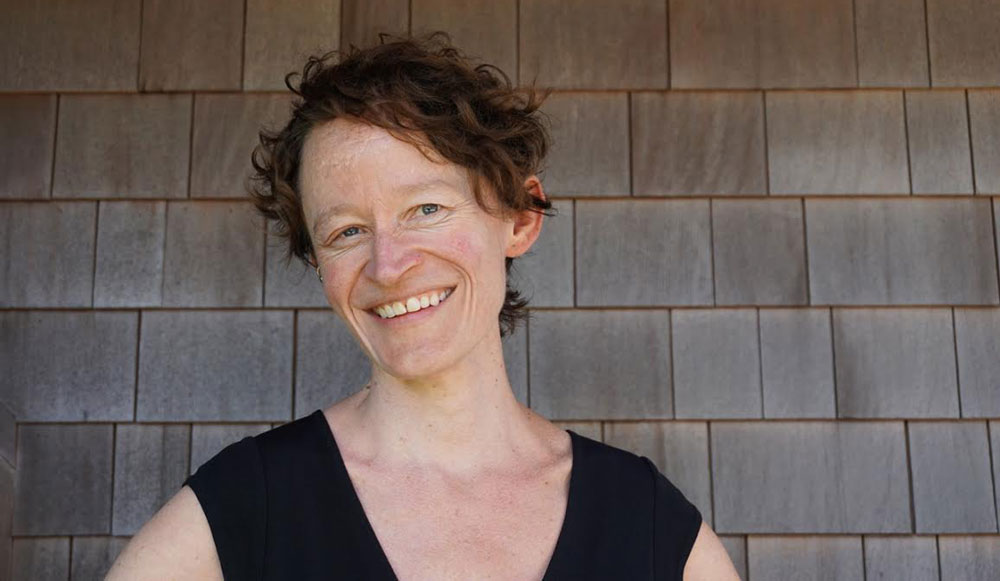
Carrie Smith, Chair of Modern Languages and Cultural Studies, is excited about the launch of the new BA in MLCS
This fall, theDepartment of Modern Languages and Cultural Studies will launch its new single major, replacing multiple, individual degrees previously available through the department.
Inclusive of the overall breadth of this field of study, the degree will now be called, simply, a BA in Modern Languages and Cultural Studies.
"One degree encompasses all that we do," saysCarrie Smith, MLCS Chair. "It was a five-year process working with students and faculty members, and I believe we've developed a degree that better reflects the trans-national, trans-cultural and trans-linguistic possibilities open to students in the department."
The program will continue to give students a strong theoretical foundation steeped in languages, comparative and cultural studies, with a new emphasis on skill-building and experiential learning. More specifically, it will offer a flexible and student-focused approach, allowing undergraduates to design a program that best fits their interests, including courses that relate to their discipline but are not bound by language, such as media studies, applied linguistics and translation studies.
By the third year, each student will choose one of two routes - Language Studies or Cross-Cultural Studies. Taught in the language of choice, the Language Studies route will incorporate aStudy Abroad component or a more local "language-immersive"Community Service-Learning (CSL) experience and/or internship. Students will specialize in one specific language, and the literatures and cultures associated with this language, or they have the option to gain proficiency in two languages.
Last year, MLCS launched a new study abroad program calledCuba: Myths and Realities, a three-week course based in Cuba which enables students to practice Spanish in real-life situations. "There's nothing better than learning about people and events in your textbook, and then going to that actual site," saysNiabi Kapoor, a recent MLCS graduate and one of the inaugural participants of the program.
"Engaging in the big issues we're facing right now as a society, using the tools of culture and language, allows us to think through these issues in new and different ways," says Smith.
The Cross-Cultural route will also incorporate an experiential learning component, allowing students to take their studies beyond the classroom with structured opportunities that include research, community service, work and travel. Students who take this route will focus on cultural literacy and study several cultures and languages through an intercultural and comparative lens, with much of the coursework conducted in English.
"We are catering to what students want now, which is choice," says Smith. "But we are also providing structure so that they don't feel lost in that choice." For those needing help to plan their degree, MLCS has provided roadmaps for both theLanguage andCross-Cultural routes.
There will be new mandatory immersive learning requirements, but the department's broad range of language and cultural studies courses will remain.
While core languages like French, German and Spanish have the highest student demand, and therefore the most capacity in terms of available courses, emerging interests can be easily accommodated under the new, single degree.
"Ukrainian, for instance, is part of our Slavic Studies program on the Cross-Cultural Studies side of things, with half the coursework conducted in English," explains Smith. "However, if there is increased interest, we can create new courses and Ukrainian then moves over to the Language Studies route - and we don't have to do a thing because it's one major. It offers us the ability to let programs grow and shrink as student interest grows and shrinks. Further, programs that have not been majors previously can find their home in the new degree, such as Italian or American Sign Language, which can now be paired with Comparative Literature in the Cross-Cultural Studies route."
When the University of Alberta established its first faculty-the Faculty of Arts and Sciences-Modern Languages was one of the four founding departments, along with English, History and Applied Sciences. That it has continued to thrive for more than 100 years is a testament to its ability to adapt and evolve to the changing needs of the various communities it serves, particularly students.
Smith is excited to see years of planning and consultation come to fruition. "We're in a really good place now," she says.
Modern Languages and Cultural Studies will be launching their new degree at a ribbon-cutting ceremony on Tuesday, September 3, 12:30 p.m., Old Arts Building, main entrance. All are welcome to attend!